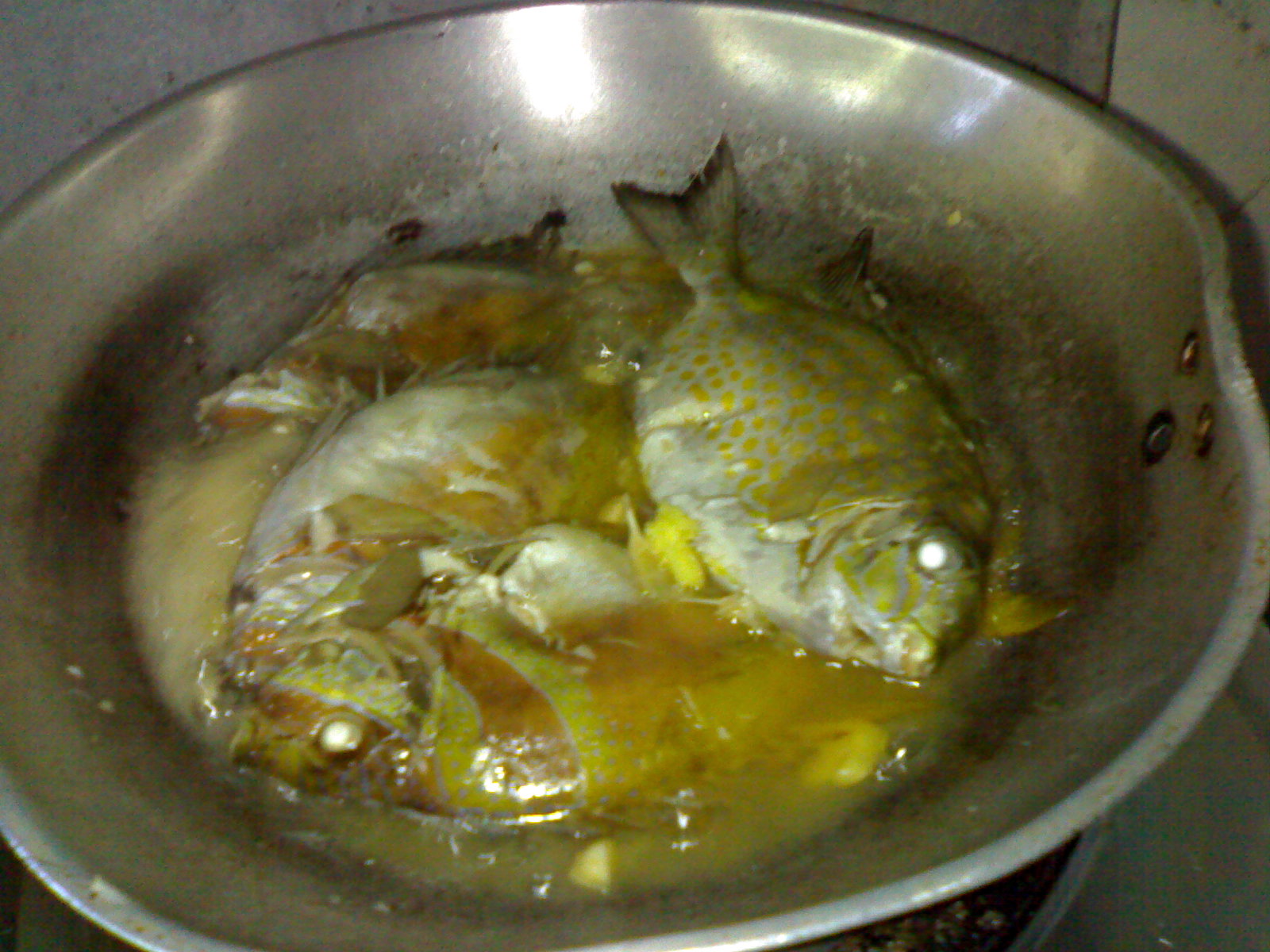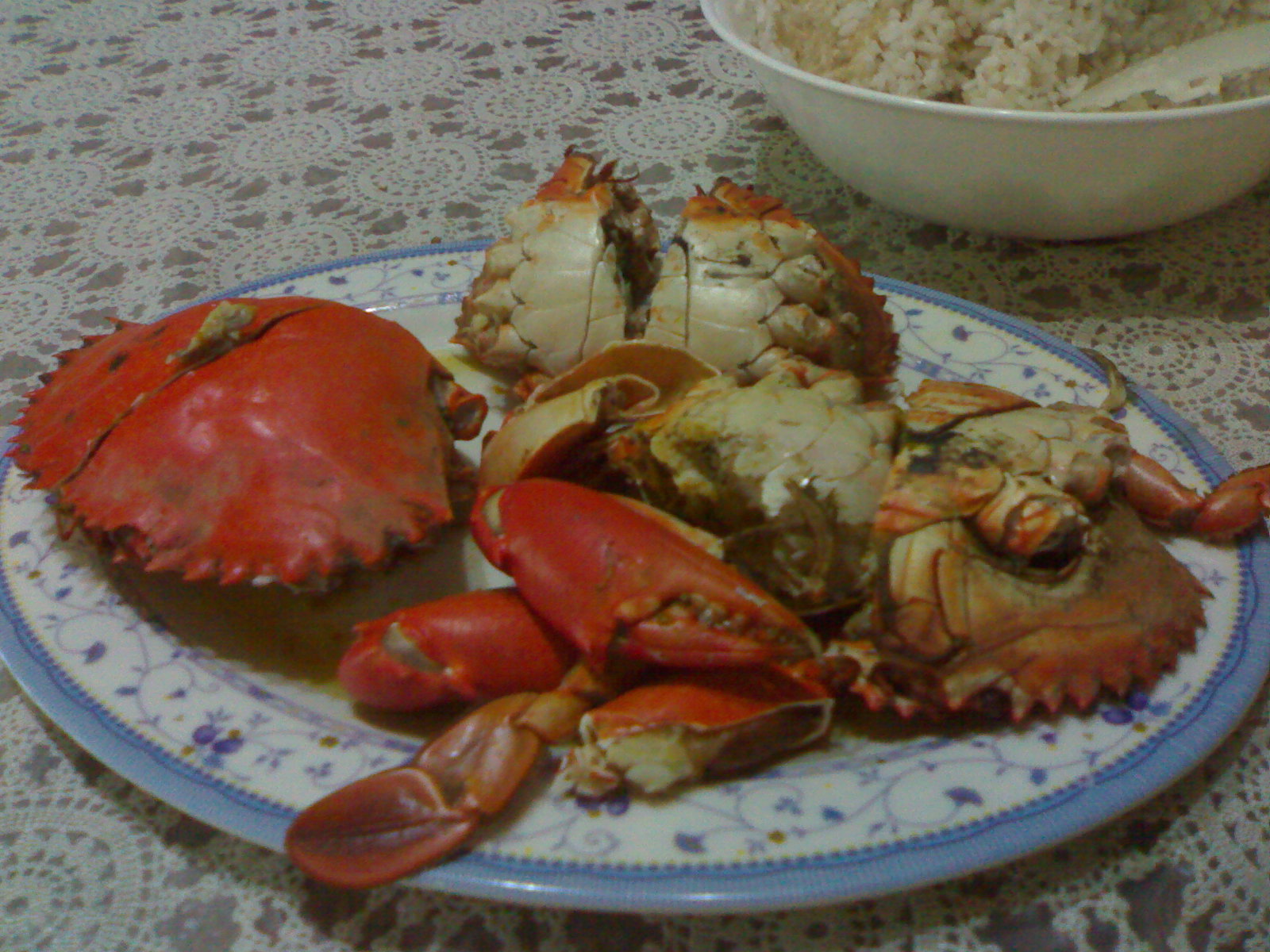 If there is one thing even outsiders associate with Lianga, it is fish of all kinds, including all manner of seafood like crabs, shrimp and lobsters - the fresh and still wriggling varieties of tasty bounty from the sea that is imbued with that delicate flavor unique to edible marine life harvested from its coastal seas. Ask any seafood connoisseur who has sampled the town's sea fare and he will tell you that its seafood is superior in taste and quality to that harvested from other parts of Mindanao.
If there is one thing even outsiders associate with Lianga, it is fish of all kinds, including all manner of seafood like crabs, shrimp and lobsters - the fresh and still wriggling varieties of tasty bounty from the sea that is imbued with that delicate flavor unique to edible marine life harvested from its coastal seas. Ask any seafood connoisseur who has sampled the town's sea fare and he will tell you that its seafood is superior in taste and quality to that harvested from other parts of Mindanao.Even today when I visit friends in other places, they always tell me that they envy the fact that I live in Lianga. Imagine all that lovely, fresh fish and fat crabs, they would exclaim. And the scrumptious shrimps too.
Well, they would be surprised to know that getting first class fish to one's table in Lianga nowadays is not exactly as easy as they think it is. Getting the chance or opportunity to feast on premium crab, lobster and shrimp is even harder still.
Lianga, as a coastal community, is lucky to be located just right at the heart of the bay that bears its name. This bay is an extremely diverse marine ecosystem that has provided, for countless decades, more than ample food and livelihoods for fishermen in the coastal communities that line its shores. Many of these communities, in fact, came to be because of the rich fishing grounds that abound in the area.
But decades of overfishing, destructive fishing practices and environmental abuse have wrecked havoc on the once abundant fishing sites and over the years, the volume and variety of the fish catch have steadily declined while the demand for fish and fish products have increased exponentially. This huge gap in supply and demand has also been aggravated by the now obtrusive presence of wholesale fish buyers with their fish trucks from outside the municipality who are buying up the local fish catch for sale elsewhere in the Caraga region or even outside it.
The transportation and marketing of locally caught fish and other seafood products outside of the Lianga area has even led to the curious, if not laughable, situation where Lianga residents have to go to such marketing towns such as San Francisco in Agusan del Sur, some 30 plus kilometers away, in order to buy fish caught within Lianga's territorial waters because they could not buy them readily at the local public market.
The declining fish catch and the higher costs of fishing (including the high fuel expenditures needed to keep motorized fishing boats running) has also pushed the market prices of food fish to such high levels that it is paradoxically (in most cases) cheaper in Lianga to buy a kilo of chicken or pork meat rather than the same quantity of prime quality fish. This is inspite of the fact that Lianga is a coastal town with no local poultry or hog raising industry and that most of its meat and poultry needs are sourced from outside the municipality.
That the local fishing industry has been neglected and ignored over the years, in the most part, by the political leadership in Lianga is undeniably true. The town's leaders in the past have always seen progress in Lianga as the consequence of pursuing an shortsighted economic policy focused solely on attracting investments in new businesses and industries. Thus local fishermen have always been largely left to fend for themselves.
 Sporadically, there have been government programs to discourage dynamite fishing, the use of fish poisons and the wanton destruction of coral reefs and other habitats sheltering marine life but the efforts have always been inconsistent and largely halfhearted. Thus the sad state of the local fishing industry in simply the inevitable consequence of apathy and inaction not only by the town government but also by the very people whose very lives are supposedly and immeasurably linked, in one way or another, to it
Sporadically, there have been government programs to discourage dynamite fishing, the use of fish poisons and the wanton destruction of coral reefs and other habitats sheltering marine life but the efforts have always been inconsistent and largely halfhearted. Thus the sad state of the local fishing industry in simply the inevitable consequence of apathy and inaction not only by the town government but also by the very people whose very lives are supposedly and immeasurably linked, in one way or another, to itA couple of days ago, I had for lunch a plate of steamed crabs. Their shells were packed full of crab fat and the meat deliciously juicy yet firm. A repast fit for a king yet the sad fact is that the crabs did not come from Lianga. They came from Hinatuan, another coastal town a long way down south of Lianga. For dinner we had fried fish brought from street vendors coming all the way from Barobo, some 14 kilometers away.
If that is not bitter irony of the fishy and gastronomic kind then I don't know what is.
Help is on the way for our fishermen in the Lianga area. For several months Jen and I have pursued a franchise with Phoenix Petroleum to place a gas station in St. Christine, including gas pumps on a floating dock on Diatagon River. It is our hopes that this will reduce the expense to the fishermen as well as the time it takes them to refuel their boats. We are nearing the last steps before construction and we hope to be open this year. We are dedicated to helping our community grow and develop and we hope that this will be a sign to others to do the same.
ReplyDeleteMark and Merejen